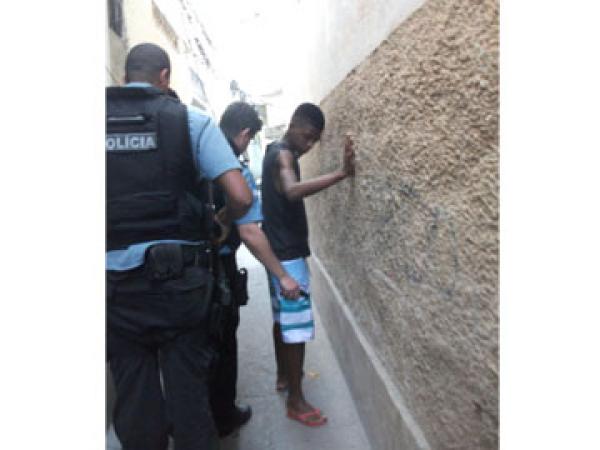Deploying the army to the Cape Flats won’t work

The call to deploy the army was heard in response to recent gang violence in Manenberg. But that’s not the solution, argues Adam Armstrong.
The idea of deploying soldiers to ‘stamp out crime’ and make us feel safe again is appealing in a country like South Africa that has been deeply affected by violent crime, at all levels. But it is unclear that this strategy would work.
Countries such as Brazil and Colombia have deployed military and para-military police units to police in civilian territories.
Like South Africa, Brazil has high levels of violent interpersonal crime, high levels of inequality and poverty. South Africa has townships and Brazil has favelas. Many favelas are controlled by drug dealers, with the state being largely absent.
The policing of the favelas has been controversial. The Brazilian government has deployed both the military and highly militarised policing units. First the army steps in, using aggressive military tactics. Then the Special Police Operations Unit is deployed, with the support of the navy and air force. After this the Pacification Police (UPP) are deployed more permanently to the favela, ensuring a constant military police presence within the communities.
Sebastian Saborio, who is writing his PhD on policing in the favelas of Brazil, says that deploying para-military police has met with mixed success. Saborio is focussing on the Pacification Police operating in Rio de Janeiro. He says that while the UPP are less violent than the army or the Special Operations Police, whose strategy when operating in the favelas is “enter to kill”, the UPP have also been implicated in violence and police brutality.
Earlier this year a senior officer from the UPP was indicted for torture and murder. Ironically, on the day of her indictment she was in the United States, making a presentation at the Google head office on surveillance technology being piloted in Brazil with the UPP, designed to enhance police oversight and reduce police brutality.
Ideologically, deploying the military to a civilian space is problematic, says Saborio. The army is traditionally deployed to hostile territories to attack enemies of the state, and the use of the army within a state, to conduct operations with civilians, can criminalise and vilify those living in that community.
Furthermore, the army is trained to engage in warfare, while police are trained to prevent crime and enforce laws. Police aim to detain and apprehend criminal offenders rather than physically neutralise them.
Eldred de Klerk, a consultant at Africa-Analysis who trains and advises police around the world, agrees that policymakers should be careful not to criminalise entire communities, but the plight of communities living under siege from organised crime and criminal gang violence needs to be taken seriously. If addressing the crime situation in the communities of the Cape Flats requires marshalling additional policing resources from around the country, then this is what needs to be done.
The army, he says, does not possess the skills or competencies necessary to police civilians. The army is trained to take control of spaces and to neutralise threats. The set of skills required to patrol and police is markedly different, and the army is unlikely to be successful at this.
De Klerk also points out that the history of deploying the army into civilian areas is not one of a benign occupying force instructed to protect and serve a vulnerable populace.
“Memories of a jack-booted army deployed to ‘police’ the, so called townships still linger in our collective memories, and those clamouring for their deployment neither share the hurt of those who have the lived experience of the army in the townships nor have the language to articulate or even understand the pain. The South African Police and the South African Defence Force routinely brutalised and devastated Cape Flats communities leaving them permanently wounded.
“The proponents of ‘bring back the army’ want them to take on the additional mantle of being different, requiring extraordinary measures of social control.
“ If SAPS is failing these communities as is being claimed, fix it”.
“In whose interests is it to perpetuate the idea of ‘gang problem’ and of a failing police?’ “ asks De Klerk.
The communities of the Cape Flats, he says, deserve local councillors who listen to them, local government institutions that involve them and are transparent about planning and budgetary assumptions, and other institutions of state like the police that serve and do not repress them or wage a war on the impoverished and politically and socially excluded classes.
We don’t need a war on gangs or a war on drugs, says De Klerk: we don’t need a war of any kind. Politicians and state institutions need to humanise the young people of the townships and adopt progressive policies rather than repressive ones.
Support independent journalism
Donate using Payfast

Don't miss out on the latest news
We respect your privacy, and promise we won't spam you.

This article is licensed under a Creative Commons Attribution-NoDerivatives 4.0 International License.
